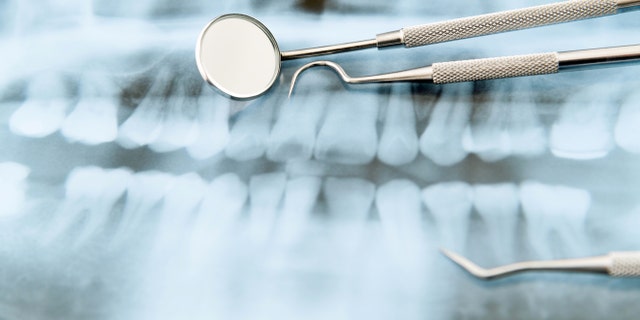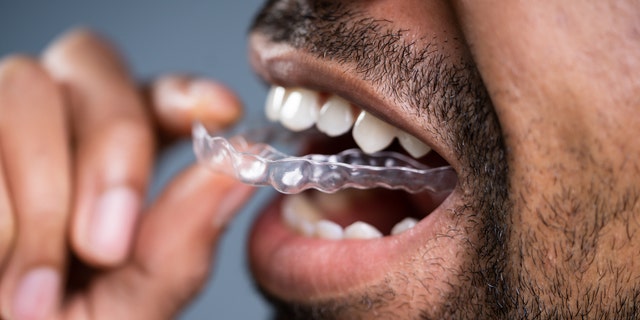
Fox News Flash top headlines for September 8
Fox News Flash top headlines are here. Check out what’s clicking on Foxnews.com.
A dentist has seen an uptick in tooth fractures amid the coronavirus pandemic.
Dr. Tammy Chen, prosthodontist, and owner of Central Park Dental Aesthetics in Midtown Manhattan, described her patients’ teeth troubles in the New York Times on Tuesday and offered several possible explanations.
“I’ve seen more tooth fractures in the last six weeks than in the previous six years,” Chen recalled saying to a friend.
While Chen addressed an increased call volume via telemedicine in mid-March when the office closed (for issues like jaw pain, migraines, and tooth sensitivity), she reported at least one fracture every day since reopening in June.
She says “one obvious answer” behind the fractures is stress, from “COVID-induced nightmares to ‘doomsurfing’ to ‘coronaphobia,” and added that it’s clear the ongoing pandemic is causing anxiety, thereby affecting mental health. The stress may cascade to “clenching and grinding” that can damage teeth, Chen explained.

A dentist has voiced an uptick in tooth fractures amid the coronavirus pandemic. (iStock)
EXPERIENCING CORONAVIRUS-RELATED NIGHTMARES? EXPERT EXPLAINS 'PANDEMIC DREAMS'
She pointed to two more factors behind the tooth trauma. First, she reasoned that the shift to working from home prompted an increase in habits that lead to poor posture.
One spinal surgeon echoed this sentiment to Fox News earlier in the pandemic.
“If you’re craning forward with your neck or rounded shoulders, the muscles are working overtime to make sure the head stays relatively in line with your pelvis,” Dr. Rahul Shah, a board-certified orthopedic spine and neck surgeon, and partner with Premier Orthopaedic Associates in New Jersey, told Fox News.
NEWS ANCHOR CATCHES TOOTH AS IT FALLS OUT DURING LIVE BROADCAST
Altered posture predisposes the body to small irritations or injuries because the muscles quickly fatigue in a disproportionate way, Shah explained.
However, Chen adds that the “awkward body positions” and poor posture can lead to grinding of the teeth at night.
“The simple truth is that nerves in your neck and shoulder muscles lead into the temporomandibular joint, or TMJ, which connects the jawbone to the skull,” she wrote. The other factor behind the tooth trauma could be sleep issues, she said.
“Since the onset of the pandemic, I’ve listened to patient after patient describe sudden restlessness and insomnia. These are hallmarks of an overactive or dominant sympathetic nervous system, which drives the body’s 'fight or flight' response,” Chen told the Times, adding that the tension is then directed toward the teeth.
Many patients are unaware they are grinding and clenching their teeth, Chen said.
“Your teeth shouldn’t actually touch throughout the day at all unless you’re actively eating and chewing your food. Instead, your jaw should be relaxed, with a bit of space between the teeth when the lips are closed. Be mindful, and try to stop yourself from grinding when you catch yourself doing it.”
She advised using a night guard or retainer to ease grinding and absorb pressure, but also to maintain proper posture and add in some movement throughout the body, standing every so often and getting in some extra steps. Chen suggested taking a 20-minute bath with Epsom salt or quieting the mind for 5 minutes before bed.

Chen advised using a night guard or retainer to ease grinding and absorb pressure. (iStock)
“We want to prevent any added stress from grinding that could cause these microscopic cracks to propagate into larger cracks and, ultimately, a catastrophic failure requiring a root canal, a crown, or other major dental treatment,” she said while advocating for routine dental care and cleanings.
CLICK HERE FOR THE FOX NEWS APP
Source: Read Full Article
